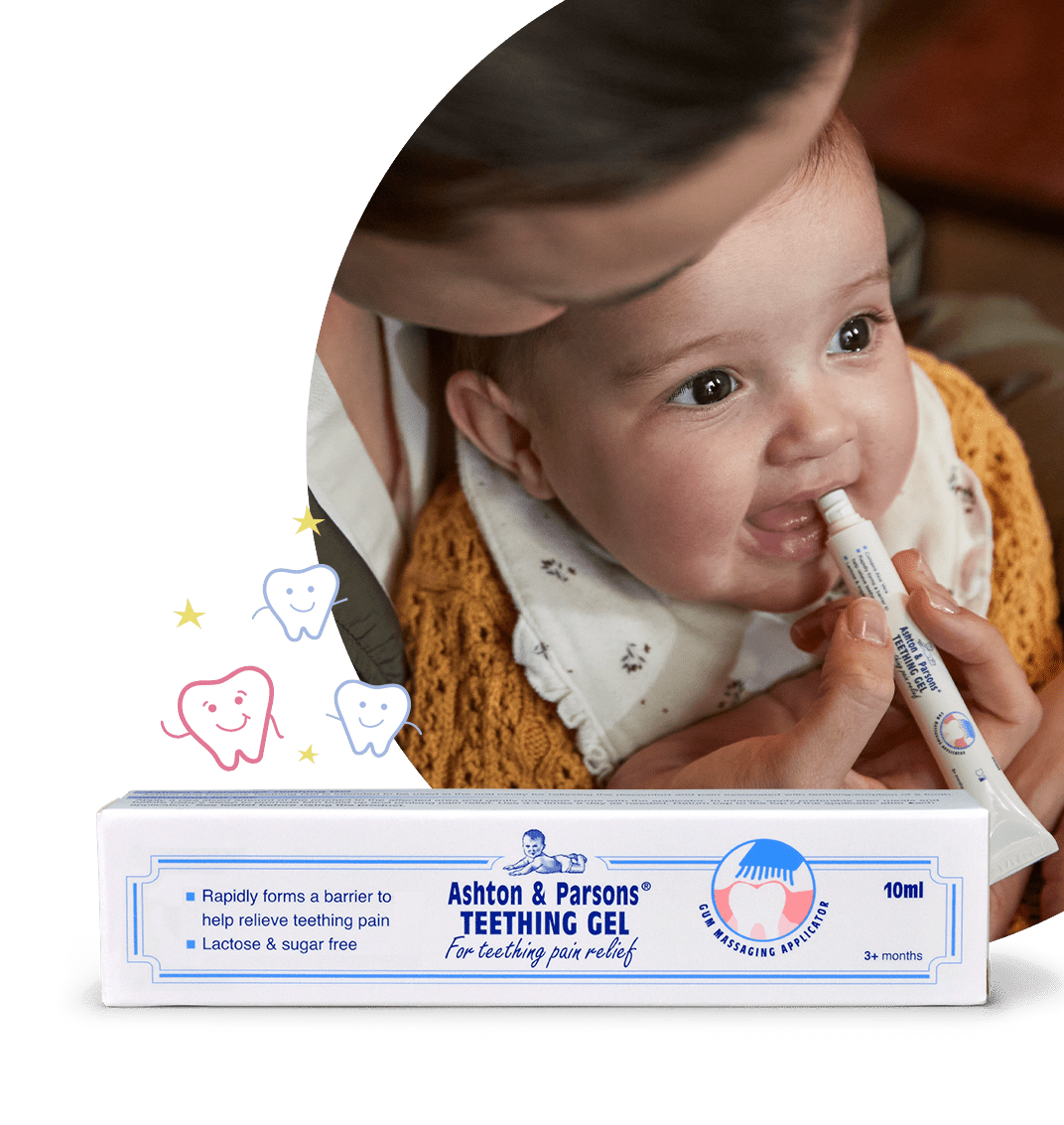Tracey Stone: Breastfeeding and Teeth – the dreaded bite!
Tracey Stone is a Health Visitor, and able to provide expert guidance on all things teething. Currently a registered practising Health Visitor in the community working with children and their families, Tracey also supports families in the online community with issues related to health and wellbeing. She is a qualified Paediatric Nurse with over 20 years’ experience and a Nurse Prescriber. She has also helped establish a respite service for Children with Special Needs.

Building your breastfeeding relationship with your baby perhaps took a few weeks from the day you welcomed them into your world. This may have been stress free, or distressing with tears and toe curling nipple pain. Once teeth are present, it is not uncommon for them to cause worry in breastfeeding mums as we all know babies, especially when teething, like to bite!
It is reassuring to know the fear of having a bite on your nipple, outweighs the chance of it happening. Babies suck using their tongue and jaw, and learn this method toothless. Your baby latches by sticking their tongue out which covers their bottom gum. This means that when teeth appear they are already shielded by their tongue, giving soft protection to you. In theory, this makes it impossible to clamp down with their teeth and feed at the same time.
By the time teething starts at approximately 6 months of age you’ll have a good idea of your babies feeding behaviour. Instinctively you’ll know their feeding cues, favourite feeding position and duration of feeds they demand. They rarely change their feeding style once their teeth appear. Making sure you have a good latch during feeding (tongue over bottom gum), helps get you off to a good start.
If your baby is actively teething, then making sure any teething troubles are managed well. If your baby latches on your breast when they are in discomfort, this may encourage a nibble. Have a look here for guidance on managing teething troubles.
When your baby is getting used to new teeth is when they may deliver an unintentional bite at end of their feed. A hungry baby will always prioritise their milk feed over a nip, so once you think their feed is coming to an end it maybe with taking them off. Watch for when their suckle loosens, and their blissful ‘my tummies full’ gaze, suggesting their feed coming to an end. Sleepy babies can also bite, so watch for signs of tiredness.
It is quite easy to unlatch a baby from your nipple by gently inserting your clean little finger into the corner of your babies’ mouth. This will break their suction and they will release themselves from your nipple. If your baby is intentionally biting, try using this method to break the suction and stop the feed. If they are hungry, they will not like these irritating pauses, soon learning its their jaw action that precedes. Babies are clever and learn fast!
As babies get older, they become far more interested in their surroundings. They can be happily feeding then decide to turn their head to look at something, taking your nipple with them! Their teeth may then come into contact with your nipple causing pain. They may also bite to get your attention, if you are distracted, so staying interested in your baby as they feed will help.
Despite all your hard work to prevent a bite, you may suddenly get that sharp pain. Try hard not to react to the shock. Fighting your natural instinct is tricky, but it may upset your baby if you don’t. In some babies, it could cause a nursing strike, where they refuse to feed for a while. Quickly break the suction and say calmly but firmly, “Please don’t bite Mummy”.
If your little one bites and simply won’t let go, gently cup the back of their head and move it into your breast. This will make it a little uncomfortable for them to catch their next breath, and will automatically release.
After all your hard work, some babies do cause damage to the nipple area. If this happens its worth gently rubbing in breast milk to your sore area, or exploring over the counter remedies at your local Chemist. If the pain is too much, or you are worried that you need more help, then speak with your HV, GP or local pharmacist.
General advice only, Tracey does not endorse the brand.





